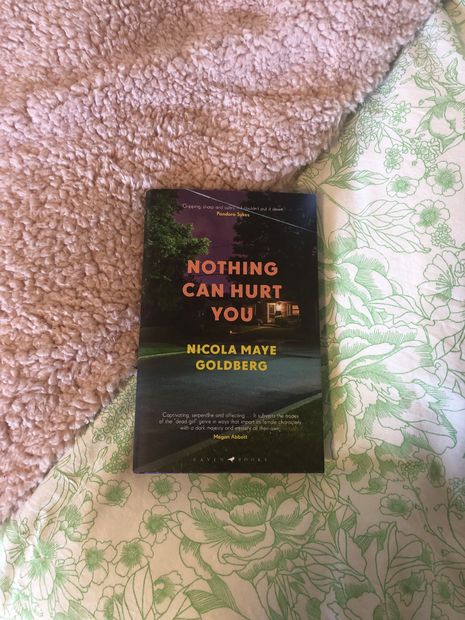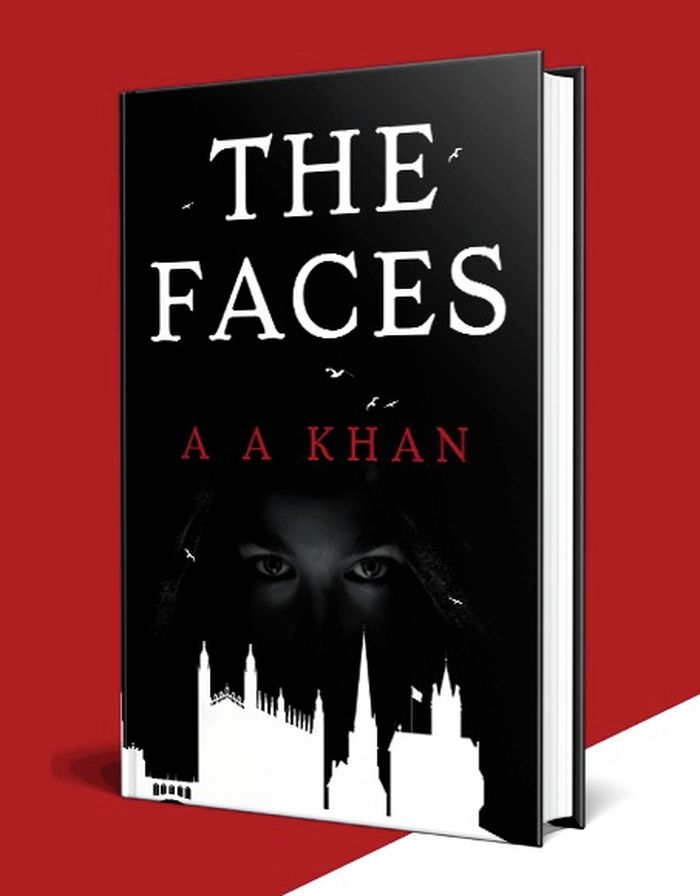Nothing Can Hurt You, the sad girl story
Caitlin Farrel reviews Nicola Maye Goldberg’s latest novel, a relationship-based thriller by the new generation of writers who cut their teeth on the internet

I first heard of Nothing Can Hurt You by Nicola Maye Goldberg on Twitter, where a mutual follower posted a photo of the book captioned “can’t believe I’m old enough that my teen sad girl tumblr mutuals are publishing novels now”. Goldberg is a New York-based writer, who has already published a novella and a poetry collection. Nothing Can Hurt You is her first novel, and forms part of a recent spate of female writers, including Naoise Dolan, Elif Bautman and Sally Rooney, whose formative experiences of writing were online. The sense of simultaneous connection and loneliness this creates – the ability to reach out to like-minded people, and the feeling that you are never really able to reach them – is captured very well in Nothing Can Hurt You, and forms a central part of the characters’ relationships.
“Goldberg recognises, through connecting Sara to such varied characters, that this violence and vulnerability affects all women and in varying ways”
Nothing Can Hurt You is in some respects a thriller: the plot centres on a college student, Sara Morgan, murdered in the late 90s in the woods near her New York liberal arts school, by her schizophrenic boyfriend Blake, and the legal aftermath of her death. However, Goldberg never presents the scene of the murder, and Sara and Blake are peripheral characters, seen only as memories. Instead, the narrative is non-linear, each chapter focuses on a different character related to the murder, who narrates a small section of their life, some in first person, some not. These characters are predominantly troubled women – the mentally ill housewife who finds Sara’s body, the party-girl alcoholic, who meets Blake in a Florida rehab centre, the prosecuting attorney, whose life is consumed by caring for her traumatised sister – their relations to Sara force them to confront their own emotional and physical vulnerability.
The theme of female vulnerability is threaded through the novel and entwined in an unsettling way with love and intimacy. This is made obvious through Sara’s murder by a boyfriend who insists that he loves her and misses her “every second of every day”. A subplot deals with a prolific serial killer, suspected by some to have killed Sara instead of Blake, and his role as a manifestation of violence against women in the public eye, even as we see a teenage girl’s school project letters to him. Goldberg recognises, through connecting Sara to such varied characters, that this violence and vulnerability affects all women and in varying ways, and, through Blake’s acquittal on grounds of temporary insanity, that society is structured to condone and excuse it. Tracy, Blake’s prosecutor, admits to her sister, who was raped as a teenager, that she “want[s] to believe that this guy is another spoiled brat who thinks he can do whatever he wants to women”, in part as a kind of retribution for her sister, but is almost too exhausted by the emotional weight of the case to care; when she calls her sister’s rapist to accuse him, she is confronted on the phone by another kind of vulnerability: his young daughter answering the phone.
Sara’s boyfriend’s sister, one of the narrating characters, laughs at her daughter Karla’s preschool teacher for commenting that Karla has “behavioural problems”. However, she later wonders whether Karla “will be a terrible thing” like her uncle, in a recognition that women too can partake in the violence which permeates society. However, Goldberg does not necessarily lead her readers to the conclusion that female vulnerability is dangerous, because her narrative is undercut by a sly, snarky tone suggesting that it can be its own weapon. Katherine, who meets Blake in rehab, is disdainful of Blake’s treatment of her as delicate, even as she craves his attention, and Serena, a private investigator looking for Sara’s missing younger sister, conducts her job (her attitude towards which she describes as “an unforgivable cliché”) with sardonic boredom; this upstages the very real fears of the family who employ her.
The novel’s short-story style, and the characters’ tenuous connections to one another, highlight the vague sense of loss and loneliness caused by the ripples of Sara’s murder. They also work very effectively in both engaging and detaching the reader, drawing you in, but not allowing you to become attached to any one narrator. The unreliability of some of them, and the focus on how and why the murder happened rather than a traditional thriller whodunit plot, makes for an intriguing psychological study as well as a quick, imaginative read, both thought-provoking and gripping.
Nothing Can Hurt You is out now and is published by Bloomsbury.
 News / Caius mourns its tree-mendous loss23 December 2025
News / Caius mourns its tree-mendous loss23 December 2025 News / Clare Hall spent over £500k opposing busway 24 December 2025
News / Clare Hall spent over £500k opposing busway 24 December 2025 Comment / Yes, I’m brown – but I have more important things to say22 December 2025
Comment / Yes, I’m brown – but I have more important things to say22 December 2025 Comment / The ‘class’ of Cambridge24 December 2025
Comment / The ‘class’ of Cambridge24 December 2025 Interviews / Politics, your own way: Tilly Middlehurst on speaking out21 December 2025
Interviews / Politics, your own way: Tilly Middlehurst on speaking out21 December 2025








